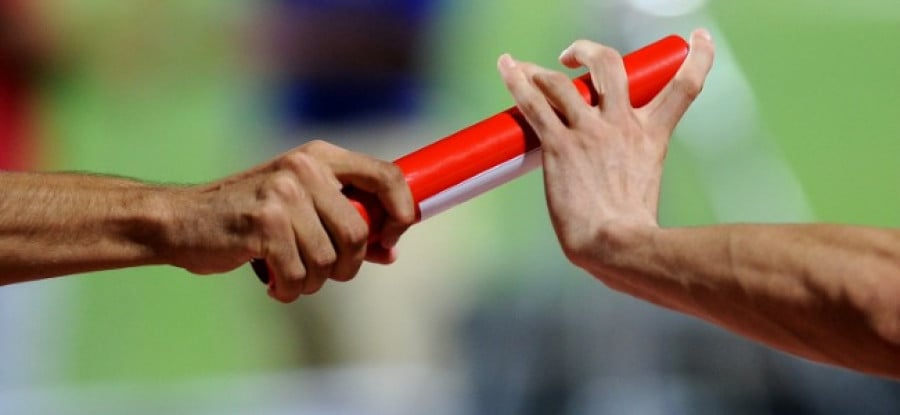The funding and employment status of elite athletes – A comparison of the UK, USA and Germany

With Rio 2016 just around the corner, this article offers a comparative analysis of how elite athletes are funded in the UK, USA and Germany. It also explores their relative employment status, and how the funds they receive are treated for tax purposes.
The United Kingdom
How are athletes funded in the UK?
A distinction needs to be drawn between: (a) the direct funding of athletes; and (b) the provision of support and benefits to athletes in connection with their training and competition activities etc. Put simply, the funding and support system for premier UK athletes works as follows:
- UK Sport1 provides funding for National Governing Bodies (“NGBs”), enabling them to operate World Class Performance Programmes (“WCPPs”) for their respective sports.
- Athletes who are selected to participate in a WCPP will enter into a Performance Athlete Agreement (“PAA”) with their NGB (or other properly designated funding body).
- By entering into a PAA, the Athlete commits that s/he will comply with a number of obligations laid down by the NGB, relating to (amongst other matters): compliance with an Individual Performance Plan (“IPP”); compliance with specified standards of behaviour and attitude; compliance with betting and doping regulations; and granting rights to the NGB in relation to use of the Athlete’s image / image rights.
- In return, the Athlete is entitled to receive a “package of support and benefits” from the NGB. The “general benefits” available to an Athlete will ordinarily comprise the following:
- Training, competition and personal development planning and review;
- Coaching support (from a person with appropriate qualifications);
- Team clothing and equipment;
- Sports science support;
- Medical services;
- Lifestyle management and personal development support;
- Travel and accommodation expenses at designated camps and events;
- WCP information and advice;
- BOA/BPA passport scheme;
- High standard kit, equipment and performance clothing; and
- Insurance cover.
- UK Sport estimates that these benefits are typically worth around £36,000 - £60,000 per athlete per annum at the “Podium” level, and £23,000 - £40,000 per athlete at the “Podium Potential” level, depending on the sport.2
- Separately from the PAA, an Athlete who has been selected to participate in a WCPP will enter into agreement with UK Sport which sets out the terms and conditions applicable to the grant of an Athlete Performance Award (“APA”). This is a direct payment made to the Athlete as a contribution towards their ordinary living and personal sporting costs. The APA is solely funded by National Lottery income.
- The level of an APA is determined by a number of criteria, with a focus on the athlete’s sporting achievements and potential. While there are variances depending on the sport, three performance categories apply for “Podium” level athletes:
- Band A, up to £28,000 per annum: medallists at Olympic Games or Senior World Championships or gold medallists at Paralympic Games or Senior World Championships.
- Band B, up to £21,500 per annum: a minimum of a top eight finish at Olympic Games or Senior World Championships or medallists at Paralympic Games or Senior World Championships.
- Band C, up to £15,000 per annum: likely to be major championship performers and those who demonstrate the capacity to achieve a medal result at World or Olympic level within four years, although flexibility is given to individual sports to set their own criteria.
- Funding is awarded on the basis of an Olympic cycle and commences on 1 April (or 1 October for Winter Sports) in the year immediately following a Games, for a period of four years.
- The level of funding provided to athletes under APAs is reviewed annually, as part of an Annual Investment Review process.
- The APA agreement includes similar provisions to those contained in the PAA regarding the athlete’s duties and responsibilities.
What do the funding agreements have to say about the issue of employment status?
Both the PAA and the APA agreement contain express clauses addressing the issue of employment status. The PAA provides that:
- “We both…acknowledge that this Agreement is not a contract of employment”;
- “You acknowledge and agree that…becoming a member of the WCP will not create an employment relationship between us”; and
- “You acknowledge and agree that…you are solely responsible for managing Your personal financial and tax affairs, including the payment of any tax which might arise on any payments or provision of services or benefits made available to you by Us and in connection with this Agreement.”
The APA agreement provides that:
- “You and UK Sport are independent contractors and nothing shall be taken to construe an employment contract between you and us. You acknowledge that UK Sport have not made any deduction for income tax or national insurance contributions from any amounts paid to you under this Agreement.”
Ultimately the question of employee status is a matter for employment tribunals and courts to determine, based on an assessment of the “reality” of the parties’ relationship, and the ‘label’ placed on that relationship by the parties will not necessarily reflect the reality of the situation: see for example Autoclenz v Belcher.3
That being said, the author is unaware of any successful challenge to the ‘non-employment’ characterisation of the relationship that exists between athletes and their NGBs, or between athletes and UK Sport.
What does HMRC think about athletes’ funding arrangements?
For its part, HMRC does not consider that an APA gives rise to any relationship of employer / employee between UK Sport and the athlete in receipt of an APA. In essence, HMRC regards an APA as a “grant” that is not, taken in isolation, taxable as “employment income”, an “annual payment” or indeed “miscellaneous income” (as those terms are defined and interpreted in the relevant tax legislation).4
HMRC’s guidance includes the following example:5
“Despite being ranked in the world top 10, Helen competes in a sport where it is generally very difficult for even top athletes to attract sporting income. The physiological demands of her event mean she can’t work while training at the level required to be world class. Her only source of income is therefore currently her Athlete Personal Award (APA).
The award alone does not bring into existence a profession. Helen’s sporting activities do not amount to carrying out a professional activity through her sport. As the APA is a voluntary grant given for nothing in return, the award is not taxable (see BIM50675).”
Although the statement that the APA is given “for nothing in return” is perhaps going too far (when one considers the athlete’s agreement regarding the use of their personal image for certain purposes, and their commitment to attend “National Lottery Appearance Days” etc.), HMRC’s stance is that funding received under an APA will not be regarded as taxable income, provided that the athlete is not carrying out a professional activity through his or her sport. It follows that the tax position is different for those athletes in receipt of an APA who are “organised in a business-like manner and…seriously interested in profit.”
The HMRC guidance includes another ‘case study’ concerning an athlete who wins a World Championship gold medal and engages an agent to help her exploit her recent success. In addition to her APA, she receives significant income from sponsorship / endorsement fees, after-dinner speeches, appearance fees, competition winnings and TV appearances etc. An athlete in this position would be regarded as carrying on a profession / trade and so the APA, as part of the athlete’s “trading income”, would be taxable. On the flip side, an athlete who is regarded as carrying on a profession will be able to deduct certain business expenses from their trading income, for the purpose of calculating their tax liability.
To continue reading or watching login or register here
Already a member? Sign in
Get access to all of the expert analysis and commentary at LawInSport including articles, webinars, conference videos and podcast transcripts. Find out more here.
- Tags: Athletics | Employment Law | German Ministry of Interior and the German Ministry of Defence | Germany Olympic Games | Governance | HMRC | IOC | Olympic | Olympic Charter | Olympic Games Rio de Janeiro 2016 | Paralympics | Regulation | Rowing | Swimming | Tax Law | Team USA | UK Sport | United Kingdom (UK) | United States of America (USA) | United States Olympic Committee (USOC)
Related Articles
- Resolving failed last minute football transfer deals: lessons from the De Gea case
- Navigating Olympic advertising: Rule 40 – a global perspective
- What has the Marcos Rojo case taught us about third party investment in footballers?
- Hosting the Olympic Games: Will the IOC’s Agenda 2020 help cut costs and assist smaller nations?
Written by
Andrew Smith
Andrew is a barrister practising from 11KBW in London. He is ranked as a leading sports and employment law barrister by Chambers & Partners and Legal 500.
Paul J. Greene
pgreene@globalsportsadvocates.com | @greenesportslaw
Paul J. Greene, Esq. is a U.S. based sports lawyer who protects the rights of athletes in disputes, including those charged in anti-doping proceedings. Paul has been recognized by Chambers USA and Super Lawyers as one of America’s top sports lawyers.
Christian Keidel
Christian Keidel is a partner Partner at Lentze Stopperhas. He been focusing his area of expertise for more than 12 years on dispute resolution in sport and the advice of international sport associations. He has represented successfully stakeholders in sports in numerous cases in front of the dispute resolution bodies of UEFA and FIFA as well as the Court of Arbitration for Sport (CAS) and state courts. He is also a long-time advisor to international sports associations with respect to regulations, good governance and the commercialisation of rights.
Alexander Engelhard
Alexander Engelhard is a dispute resolution and commercial lawyer advocating before state courts and arbitral tribunals, especially in the sport, media and entertainment industry. He also acts as arbitrator and mediator. In addition, he advises clients on the drafting of contracts, rules and regulations.
He is a member of various arbitration and sports law-related organisations. He is also a lecturer at the University of Frankfurt for German and international arbitration, as well as on dispute resolution in national and international sport.
JUVE Handbook 2018/2019: highly recommended lawyer for dispute resolution.







